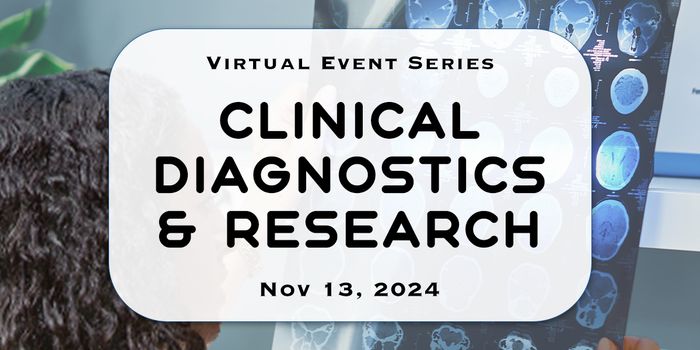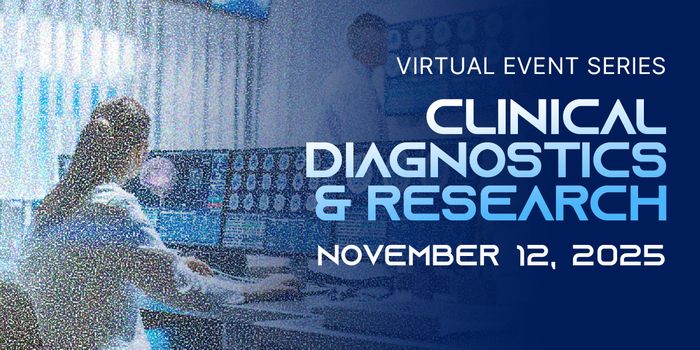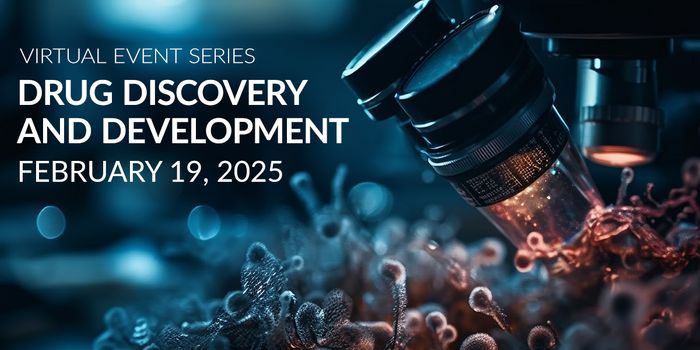Agenda Share
-
JUL 29, 2020 4:00 PM EDT
Measuring Immune Cell Killing Dynamics through Real Time Impedance and Live Cell Imaging
-
JUL 29, 2020 3:00 PM EDT
Advances and trends enabling the growth of immune-based cancer research and therapeutics
-
JUL 29, 2020 2:00 PM EDT
Route of 41BB/41BBL costimulation determines effector function of B7-H3-CAR.CD28ζ T cells
-
JUL 29, 2020 1:00 PM EDT
Using quantitative imaging microscopy to explore and target the molecular origins of cancer
Kirk McManus, PhD
Associate Professor, Department of Biochemistry & Medical Genetics, University of Manitoba and Senior Scientist, Research Institute in Oncology & Hematology, CancerCare ManitobaBIOGRAPHY -
JUL 29, 2020 12:00 PM EDT
Linking Cancer Metabolism to Neurodegeneration
Navdeep S. Chandel PhD
David W. Cugell Professor of Medicine, Biochemistry and Molecular Genetics, Feinberg School of Medicine, Northwestern University, ChicagoBIOGRAPHY -
JUL 29, 2020 11:00 AM EDT
STAT3 phosphorylation during phagocytosis is required to activate autophagy and prevent macrophage immuno-senescence
Lara Campana, PhD
Research Fellow, Post-doctoral research Associa, Centre for Regenerative Medicine, University of EdinburghBIOGRAPHY -
JUL 29, 2020 10:00 AM EDT
Metabolic control of T cell tolerance and antitumor immunity
Hongbo Chi, PhD
Member (Professor), Robert G. Webster Endowed Chair, Department of Immunology, St. Jude Children's Research HospitalBIOGRAPHY -
JUL 29, 2020 9:00 AM EDT
Impedance-based assay to evaluate potency of immunotherapy products
Juan Miguel Sanchez Nieto, PhD
Analytical Development Scientist, Cell and Gene Therapy CatapultBIOGRAPHY -
JUL 29, 2020 8:00 AM EDT
High-throughput DNA damage analyses identify synergistic drug combinations to treat malignant brain tumours
Sachin Katyal, PhD
Asst. Professor, Dept. of Pharmacology and Therapeutics, University of Manitoba; Senior Scientist, Research Institute in Oncology and Hematology, CancerCare Manitoba, CanadaBIOGRAPHY -
JUL 29, 2020 7:00 AM EDT
What intratumoral Tregs eat makes them strong, but vulnerable: a new metabolic intervention for cancer immunotherapy
Ping-Chih Ho, PhD
Associate Professor, Department of Fundamental Oncology, University of Lausanne, Associate member, Ludwig Institute for Cancer ResearchBIOGRAPHY -
3D Culture Methods and Imaging Considerations
Brad LarsonField Applications Scientist, BioTek InstrumentsValerie Sodi, PhDField Applications Scientist, BioTek Instruments
Immuno-Oncology & Cancer Biology Virtual Conference
Advancing Together: Accelerating Discovery through Live Cell Analysis with Agilent, BioTek, and ACEA Biosciences
The rapid development of immuno-oncology therapies has transformed the cancer treatment landscape. Discovering safe, potent, and persistent immune cell products requires a complete understanding of cancer biology and immune cell properties such as activation, cell fate, cytotoxic killing, immunomodulation, and memory. With our real-time live cell analysis tools, gain deeper insights into immune cell function and its response to the immunosuppressive tumor microenvironment.
In addition, our understanding of cancer biology and the development of new drugs is steadily improving through the use of more complex in vitro cancer models that enhance the physiological relevance of assay data. 3D cell culture technologies, particularly those that form spheroid and organoid models, are at the forefront of these measures. Long-term live cell imaging is particularly useful in quantifying drug effects on these complex models.
This live virtual event will feature presentations by leading scientists from several notable institutions. Agilent, and the newest members of the Agilent family, BioTek and ACEA, will be showcasing their latest innovations in cell analysis, including product launches, software demos, and scientific posters. You will also be able to live chat with product experts from all three companies.
Register to learn more about these solutions for immuno-oncology and cancer biology applications:
-
Elucidate cell health, behavior, and function with the xCELLigence RTCA eSight’s dual live cell imaging and real-time impedance capabilities
-
Evaluate immune cell function with the new 5-laser, 30 color Novocyte Penteon benchtop flow cytometer
-
Target the source of cancer cell proliferation and survival in the tumor microenvironment with functional, live-cell metabolism using the new Seahorse XF HS Mini Analyzer
-
Discover cell programming to mount a sustained and robust antitumor response with real-time metabolic analysis which enables you to measure and tune the drivers of immune cell fate and function with Seahorse XF technology
-
Conduct detailed quantitative analysis of 3D cell culture systems—including complex immuno-oncology models—using kinetic imaging and powerful image analysis tools available with the BioSpa Live Cell Analysis System and Gen5™ software
-
Utilize efficient and robust microplate reader-based assays with the Cytation™ Cell Imaging Multi-Mode Reader to characterize cellular behavior using both 2D and 3D formats
-
Improve sample quality and assay reproducibility using MultiFlo™ FX Multi-Mode Dispenser optimized for long-term maintenance of biologically relevant 3D cancer model systems
For Research Use Only. Not for use in diagnostic procedures.
Speakers Share
-
Lara Campana, PhD
Research Fellow, Post-doctoral research Associa, Centre for Regenerative Medicine, University of Edinburgh
BIOGRAPHY
-
Fabio Cerignoli, PhD
Senior Field Application Scientist, Agilent Technologies
BIOGRAPHY
-
Navdeep S. Chandel PhD
David W. Cugell Professor of Medicine, Biochemistry and Molecular Genetics, Feinberg School of Medicine, Northwestern University, Chicago
BIOGRAPHY
-
Hongbo Chi, PhD
Member (Professor), Robert G. Webster Endowed Chair, Department of Immunology, St. Jude Children's Research Hospital
BIOGRAPHY
-
Joe Clayton, PhD
Senior Principal Scientist, BioTek Instruments
-
Christopher DeRenzo, MD
Assistant Member, St. Jude Children's Research Hospital
BIOGRAPHY
-
David Ferrick, PhD
Associate Vice President, Agilent Cell Analysis
BIOGRAPHY
-
Ping-Chih Ho, PhD
Associate Professor, Department of Fundamental Oncology, University of Lausanne, Associate member, Ludwig Institute for Cancer Research
BIOGRAPHY
-
Sachin Katyal, PhD
Asst. Professor, Dept. of Pharmacology and Therapeutics, University of Manitoba; Senior Scientist, Research Institute in Oncology and Hematology, CancerCare Manitoba, Canada
BIOGRAPHY
-
Brad Larson
Field Applications Scientist, BioTek Instruments
BIOGRAPHY
-
Kirk McManus, PhD
Associate Professor, Department of Biochemistry & Medical Genetics, University of Manitoba and Senior Scientist, Research Institute in Oncology & Hematology, CancerCare Manitoba
BIOGRAPHY
-
Juan Miguel Sanchez Nieto, PhD
Analytical Development Scientist, Cell and Gene Therapy Catapult
BIOGRAPHY
-
Luke O'Neill, PhD
Professor (Chair of Biochemistry), Trinity College Dublin
-
Michael Overstreet, PhD
Scientist, Oncology Discovery, AstraZeneca, Oncology R&D
-
Valerie Sodi, PhD
Field Applications Scientist, BioTek Instruments
-
Yuting Sun, PhD
Institute Research Scientist, MD Anderson Cancer Center
Agilent is a global leader in life science, diagnostics, and analytical laboratory technologies. Now growing in the cell analysis space, Agilent instruments, software, services, solutions, and people provide trusted answers to our customers' most challenging questions.
What started as a unique offering of solutions focused on understanding cellular functionality based on underlying metabolic programming has transformed into a market-leading set of innovative tools with the additions of ACEA Biosciences and BioTek Instruments – providing customers the tools they need to uncover unique cell biology, discover novel drug targets, improve preclinical in vitro toxicology, and pioneer the next generation of immunotherapies.
Explore a breadth of solutions in real-time, impedance-based analysis of cell function, real-time cell metabolism, cell imaging and microscopy, microplate readers, microplate washers, flow cytometers, and more.
For Research Use Only. Not for use in diagnostic procedures.































































































